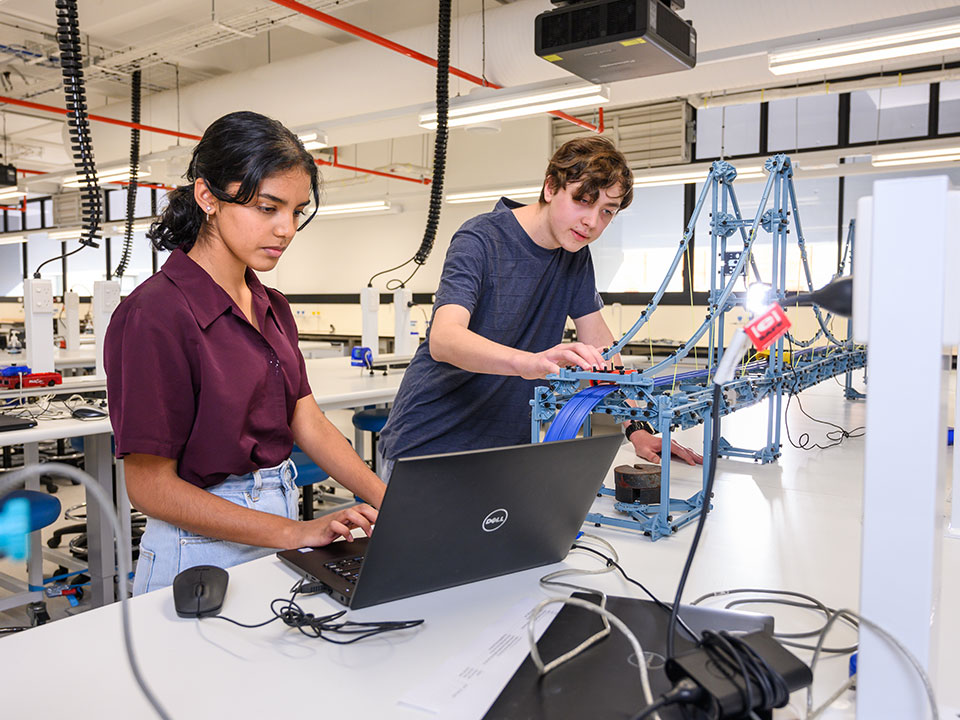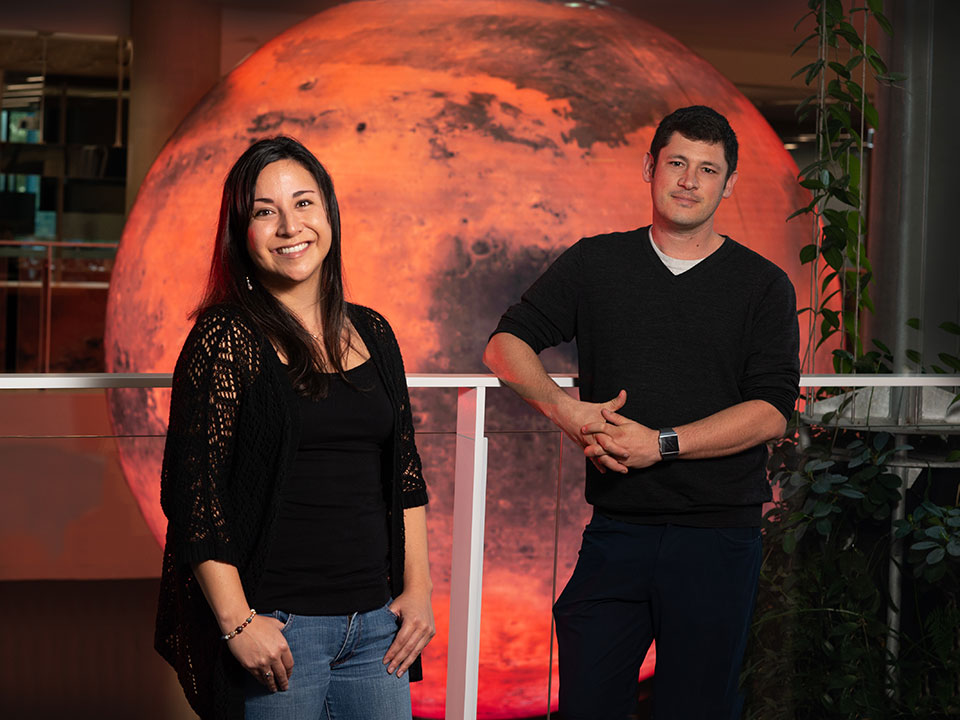Our interns
Almost 500 Doctor of Philosophy (PhD) and Master of Philosophy (MPhil) students are ready to bring fresh perspective, new skills, and innovative and creative approaches to your workplace, while giving you the chance to promote your organisation and profile future graduates.
Our research explores the frontiers of our natural, physical and digital worlds to drive innovation and develop solutions to complex, real-world challenges.
Our strengths in agriculture and the bioeconomy, climate environment and sustainability, earth and materials science, mathematics and data science, and computer and information technologies are housed within highly ranked, future-focused schools backed by world-class research centres, analytical facilities and computational infrastructure.
We are renowned for our translational research expertise in areas such as climate change, energy, resources, food security and water resource management led by internationally recognised researchers.

Student capabilities
Our research students bring essential capabilities and critical scientific, analytical, technical and project management skills for your business.
Critical and logical thinking
Problem solving
Quantitative reasoning
Qualitative and quantitative analysis
Data visualisation and interpretation skills
Teamwork and interpersonal relationships
Report writing and oral communication
Our expertise
Find something specific that aligns with your project requirements.
Mathematics
Our research students in mathematical sciences work on cutting-edge research topics that centre around the disciplines of applied mathematics, statistics, operations research, and data science. Our students have capabilities in:
- high performance computing
- computational modelling: fluid mechanics, porous media, material microstructure optimisation
- mathematical biology and ecology
- optimisation, logistics and scheduling
- Bayesian statistics.

Information technology
Research students in the School of Computer Science and School of Information Systems undertake fundamental and applied research to enhance human interaction with data, ensure data security, and leverage cutting-edge technologies for discovery and for business automation and innovation. Our students are working in a variety of research areas including:
- data and process mining, process analysis and improvement
- emerging technologies such as blockchain, immersive technologies (AR/VR), Internet of Things, industrial IoT
- large-scale data analysis, in domains such as ecoacoustics, energy, business intelligence, health, and bioinformatics
- artificial intelligence and machine larning, including issues around data governance, data quality, trust, ethics, uncertainty quantification and explainability
- cybersecurity
- enterprise architecture
- inclusive technologies for people of diverse cognitive abilities
- digital wellbeing.

Natural sciences
In the natural sciences, our three schools, the School of Biology and Environmental Science, the School of Chemistry and Physics and the School of Earth and Atmospheric Sciences, engage in collaborative, interdisciplinary research to drive innovation, develop effective solutions to complex real world challenges, and explore the frontiers of our biological and physical worlds.
Chemistry and physics
Our research students conduct cutting-edge, innovative research in state-of-the-art laboratories equipped with cutting-edge scientific instrumentation. Students explore the entire spectrum of chemistry and physics including:
- analytical surface science
- synthesis of soft matter materials
- molecular recognition and sensors
- inorganic nanomaterials
- medicinal chemistry
- energy storage and batteries
- sustainability and circular economy
- extragalactic astrophysics and cosmology.

Biology and environmental science
Our students solve problems that matter to future generations by undertaking research in state-of-the-art laboratories and in the field. Their research areas include:
- sustainable agricultural development and production
- groundwater
- greenhouse gas emissions and climate resilience
- ecology, biodiversity conservation and monitoring
- big data analysis, artificial intelligence and modelling
- evolutionary biology
- biocommodities and biotechnology
- synthetic biology.

Earth and atmospheric sciences
Our research students study the Earth, its rocks, oceans, and atmosphere. Their research addresses environmental challenges affecting different industries including climate change, air quality, reef restoration, natural hazards, resource discovery, characterisation and clean energy. Our students also study the emergence of early life and the evolution of other planetary bodies in our solar system. They have a variety of interdisciplinary capabilities including:
- fieldwork in diverse, often remote, locations
- geological, geophysical, geochemical, and geochronological data generation and interpretation
- quantitative data analysis and mathematical modelling
- geospatial visualisation
- advanced laboratory analysis (solids, fluids, gases) using cutting-edge scientific instrumentation such as synchrotrons, light and electron-beam microscopy, mass spectrometry, XRF/XRD, gas and liquid chromatography
- planetary surfaces analysis through remote sensing.

Contact us
Get in touch with us for more information on Faculty of Science research student internships.